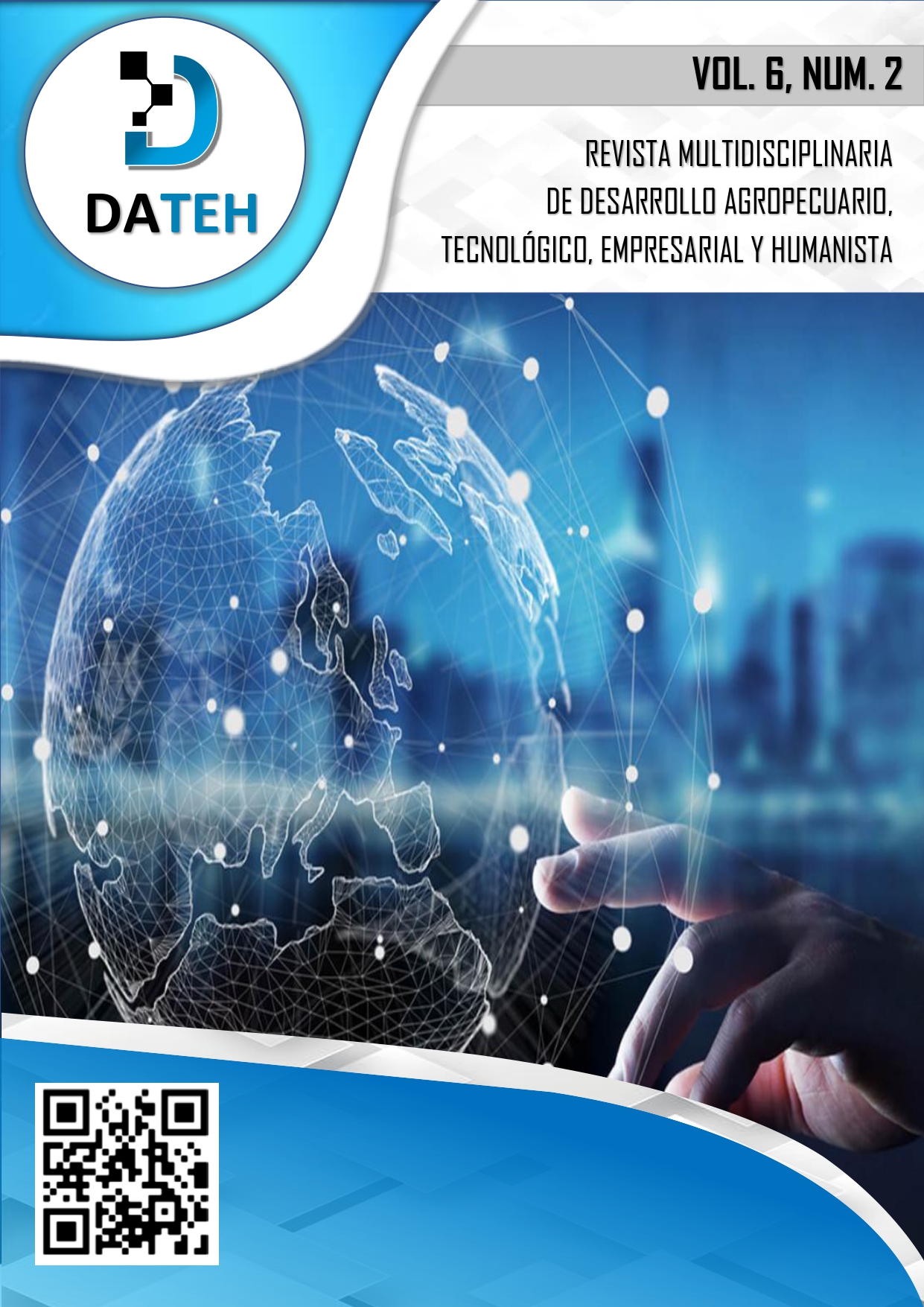Exploratory study of the use of ICT in the M-learning modality of education
Abstract
The learning model based on the use of mobile devices or M-learning is presented as one of the emerging technologies with a significant impact on present and future educational processes, due to the ease of access to information at any time and in any anywhere allows you to develop a flexible and personalized learning experience in which context is important. M-learning is the result of a combination of E-learning with mobile devices, with the ability to promote educational experiences in any situation, place and time, transferring learning processes to a new dimension by being able to cover urgent educational needs with mobility and high interactivity. Based on the above, the present bibliographical review was developed with the objective of studying the use of ICT in the M-learning modality of education, allowing to demonstrate the investigative work carried out in this area, as well as the knowledge of the contributions of this methodology to the educational processes, which are always oriented to obtain a significant learning that transcends the daily, professional and work life of the students.
Downloads
References
Bas, M., & Sarigöz, O. (2018). Determining the Readiness Levels of Pre-Service Teachers towards Mobile Learning in Classroom Management. Educational Research and Reviews, 13(10), 382-390.
Bere, A., & Rambe, P. (2019). Understanding Mobile Learning Using a Social Embeddedness Approach: A Case of Instant Messaging. International journal of education and development using information and communication technology. https://www.semanticscholar.org/paper/Understanding-Mobile-Learning-Using-a-Social-A-Case-Bere-Rambe/d08543fded60d3cb40eab491bce773135087e980
Brown, S. (2018). An Investigation of Faculty Perceptions About Mobile Learning in Higher Education. Theses and Dissertations. https://nsuworks.nova.edu/fse_etd/182
Çelik, H. C., & Karayaman, S. (2018). Investigating Attitudes of Prospective Mathematics Teachers towards the Use of Mobile Learning at a Higher Learning Institution. Universal Journal of Educational Research, 6, 1784-1794. https://doi.org/10.13189/ujer.2018.060823
Chirino-García, R. C., & Hernández-Corona, J. (2020). M-learning: Estrategia para la promoción del aprendizaje electrónico móvil en instituciones de educación superior. EPISTEME KOINONIA, 3(5), 102-121.
Desmarais, M. C., & Baker, R. S. J. d. (2012). A review of recent advances in learner and skill modeling in intelligent learning environments. User Modeling and User-Adapted Interaction, 22(1), 9-38. https://doi.org/10.1007/s11257-011-9106-8
Enayati T, Yazdan Panah Nozari A, Behnamfar R, & Ghafari Hamedani S. S. (2014). Cell Phone Applicability in Providing Educational Content to Students. Education Strategies in Medical Sciences, 7(2), 115-120.
Ennouamani, S., Akharraz, L., & Mahani, Z. (2019). Integrating ICT in Education: An Adaptive Learning System Based on Users’ Context in Mobile Environments. En Y. Farhaoui & L. Moussaid (Eds.), Big Data and Smart Digital Environment (Vol. 53, pp. 15-19). Springer International Publishing. https://doi.org/10.1007/978-3-030-12048-1_3
Gan, C. L., & Balakrishnan, V. (2014). Determinants of mobile wireless technology for promoting interactivity in lecture sessions: An empirical analysis. Journal of Computing in Higher Education, 26(2), 159-181. https://doi.org/10.1007/s12528-014-9082-1
García-Bullé, S. (2019, junio 20). ¿Qué es el m-learning? ¿Es una opción viable para la educación del siglo XXI? Observatorio / Instituto para el Futuro de la Educación. https://observatorio.tec.mx/edu-news/que-es-mobile-learning/
Hashemi, M., Azizinezhad, M., Najafi, V., & Nesari, A. (2011). What is Mobile Learning? Challenges and Capabilities. Procedia - Social and Behavioral Sciences, 30, 2477-2481. https://doi.org/10.1016/j.sbspro.2011.10.483
Hernández, T. (2010). M-learning como Estrategia de Diversificación en Ambientes Colaborativos. Universidad Rafael Belloso Chacin. http://190.168.5.19/index.php/cled/article/viewFile/285/305
Huang, H.-C., Wang, T.-Y., & Hsieh, F.-M. (2012). Constructing an Adaptive Mobile Learning System for the Support of Personalized Learning and Device Adaptation. Procedia - Social and Behavioral Sciences, 64, 332-341. https://doi.org/10.1016/j.sbspro.2012.11.040
İlçi, A. (2014). Investigation of pre-service teachers’ mobile learning readiness levels and mobile learning acceptance levels [Master Thesis, Middle East Technical University]. https://open.metu.edu.tr/handle/11511/23452
Kaliisa, R., & Picard, M. (2017). A systematic review on mobile learning in higher education: The African perspective. 16, 1-18.
Kitchenham, B. (2004). Procedures for Performing Systematic Reviews. Keele, UK, Keele Univ., 33. https://www.researchgate.net/publication/228756057_Procedures_for_Performing_Systematic_Reviews
Kristoffersent, S., & Ljungberg, F. (2018). Representing Modalities in Mobile Computing. Wireless Networks, 1-7.
Liaw, S.-S., Hatala, M., & Huang, H.-M. (2010). Investigating acceptance toward mobile learning to assist individual knowledge management: Based on activity theory approach. Computers & Education, 54(2), 446-454. https://doi.org/10.1016/j.compedu.2009.08.029
Mahat, J., Ayub, A. F. M., Luan, S., & Wong. (2012). An Assessment of Students’ Mobile Self-Efficacy, Readiness and Personal Innovativeness towards Mobile Learning in Higher Education in Malaysia. Procedia - Social and Behavioral Sciences, 64, 284-290. https://doi.org/10.1016/j.sbspro.2012.11.033
Mohammadi, M., Sarvestani, M. S., & Nouroozi, S. (2020). Mobile Phone Use in Education and Learning by Faculty Members of Technical-Engineering Groups: Concurrent Mixed Methods Design. Frontiers in Education, 5. https://www.frontiersin.org/articles/10.3389/feduc.2020.00016
Rosman, P. (2008). M-LEARNING - AS A PARADIGM OF NEW FORMS IN EDUCATION. Biblioteca Digital de La Universidad de Bohemia Occidental En Pilsen, 1(1), 119-125.
Stošić, L., & Bogdanović, M. (2013). M-LEARNING - A NEW FORM OF LEARNING AND EDUCATION. International Journal of Cognitive Research in Science, Engineering and Education (IJCRSEE), 1(2), Article 2.
Thomas, K., O’Bannon, B., & Britt, V. (2014). Standing in the Schoolhouse Door: Teacher Perceptions of Mobile Phones in the Classroom. Journal of Research on Technology in Education, 46, 373-395. https://doi.org/10.1080/15391523.2014.925686
Uzunboylu, H., & Ozdamli, F. (2011). Teacher perception for m-learning: Scale development and teachers’ perceptions. Journal of Computer Assisted Learning, 27(6), 544-556. https://doi.org/10.1111/j.1365-2729.2011.00415.x.



